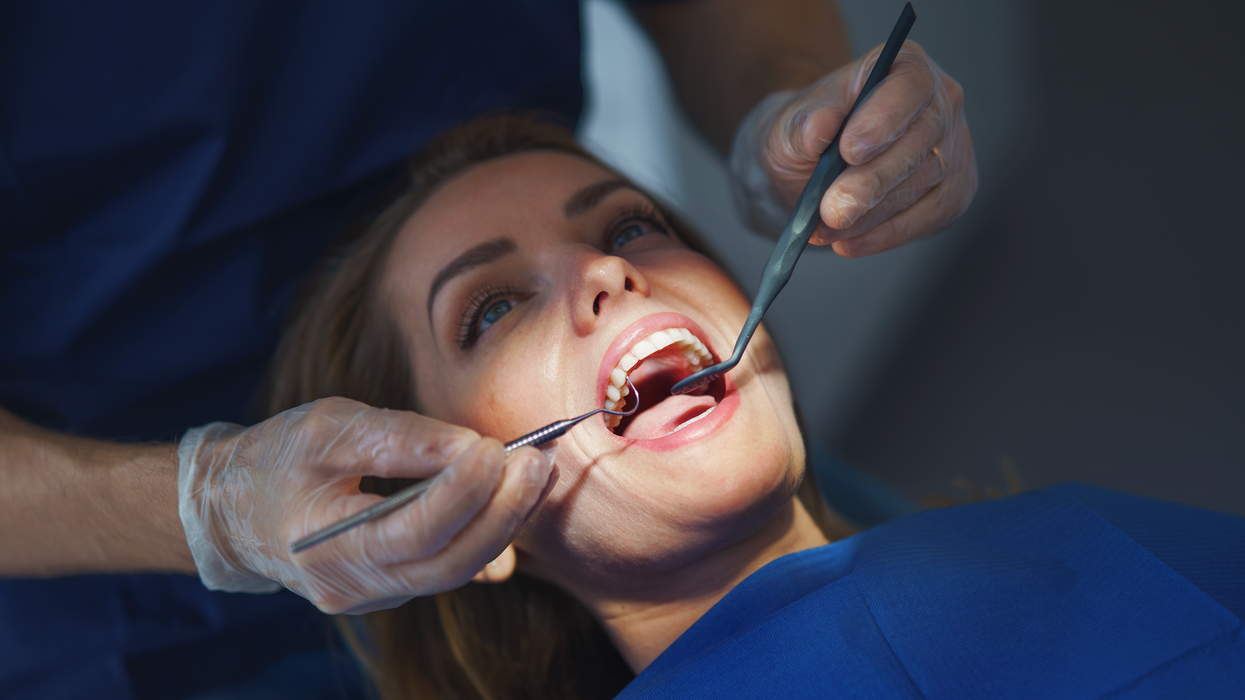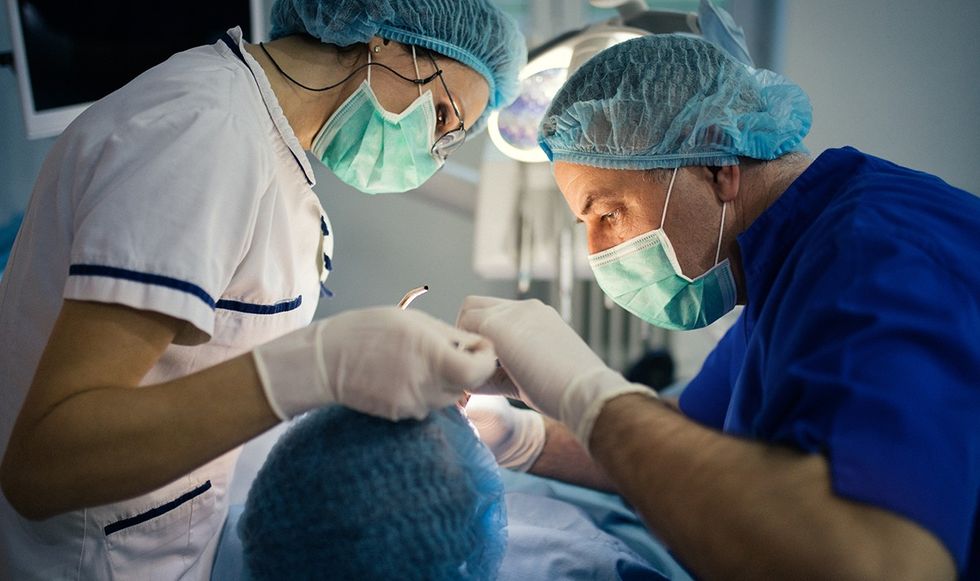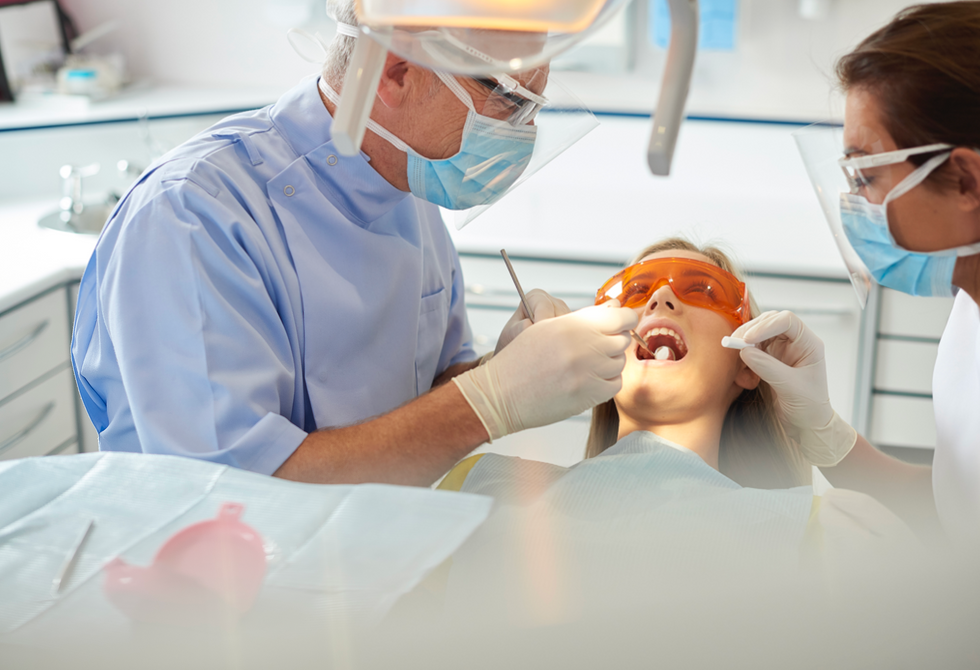Patients dying after not getting antibiotics at the dentist: Researchers warn 400,000 Britons at risk

People susceptible to a serious heart infection could be at risk of dying due to not getting antibiotics at the dentist
|Getty Images

- Prescribing antibiotics to patients at higher risk of IE could save lives
- Around 400,000 Britons could be at risk of the serious heart condition
- Researchers calling on NICE to revise its dental guidance
Don't Miss
Most Read
Latest
People who are more susceptible to a serious heart infection could be at risk of dying from the condition due to not getting antibiotics at the dentist, researchers warn.


Prescribing antibiotics to patients at a higher risk of developing infective endocarditis (IE) – an inflammation of the inner lining of the heart – before dental work could save lives and save the NHS money, they claim.
The National Institute for Health and Care Excellence (Nice) recommended against antibiotic prophylaxis, or when antibiotics are given as a precaution to prevent infection, for those at risk of IE and undergoing dental procedures in 2008.
Researchers are now calling on the NHS spending watchdog to revise its guidance.

Researchers are now calling on the NHS spending watchdog to revise its guidance
| Getty ImagesHowever, Nice rejected the claim that patients are being harmed, and said while using antibiotics in this way is not routinely recommended, healthcare professionals “should use their clinical judgement”.
It is understood that about 400,000 people in the UK are a high risk for IE every time they have dental work, with an estimated 261 people a year contracting the infection and 78 dying from it.
According to the NHS, it is more common among older people, although it has been detected in children born with congenital heart disease.
About 30 percent to 40 percent of cases are caused by bacteria from the mouth, either from poor dental hygiene or invasive dental treatment such as tooth extractions.
A study led by the University of Sheffield’s School of Clinical Dentistry claims the risk of contracting IE is one in 1,000 among high risk patients having dental work as a whole.
However, the odds are revised to one in 3,333 if antibiotics are administered prior to treatment.
The findings – published in The Lancet Regional Health – also claim the risk among those having a tooth extraction is one in 100 in the absence of antibiotic prophylaxis, which falls to one in 1,000 when antibiotics are used.
In high risk patients having oral surgery, the risk of IE is one in 40, falling to one in 500 with antibiotic prophylaxis.
Lead author Professor Martin Thornhill, of the University of Sheffield’s School of Clinical Dentistry, said: “Infective endocarditis is a rare but devastating heart infection in which around 30% of people die within the first year of developing it.
“All major guidelines committees around the world, such as The American Heart Association and the European Society for Cardiology, recommend that those at high-risk of infective endocarditis should receive antibiotic prophylaxis before undergoing invasive dental procedures.
“We are urging Nice to review its guidance so that high-risk patients in the UK receive the same protection against IE that is afforded to patients in the rest of the world.”
A spokesperson for Nice said that the watchdog “rejects the claim that patients are being harmed as result of our guideline”.
“The guideline says that antibiotic prophylaxis against infective endocarditis is not routinely recommended for people undergoing dental procedures,” they added.
“However, healthcare professionals should use their clinical judgement when implementing recommendations, taking into account the individual’s circumstances, needs and preferences.
“Our surveillance team is due to review the current evidence relating to prophylaxis against infective endocarditis this year and will determine whether any new information, studies or research would support the case for a further update of existing Nice guidance.”
Prof Thornhill claims preventing between 40 and 260 cases of IE per year could save the NHS more than £5.5 million.
LATEST DEVELOPMENTS

Prof Thornhill claims preventing between 40 and 260 cases of IE per year could save the NHS more than £5.5 million
|Getty Images
“There are currently 400,000 people at high-risk of developing IE in the UK and this number is increasing each year due to the growing number of patients having cardiac interventions,” he said.
“Our previous study showed that prescribing antibiotic prophylaxis would be cost-effective if it prevented just 1.4 high-risk patients per year from developing infective endocarditis.
“So, by preventing between 40 and 260 cases per year antibiotic prophylaxis would be highly cost effective and would likely save the NHS in excess of £5.5 million annually as well as generating substantial health gains for those at risk of endocarditis.”
Mick Armstrong, chairman of the British Dental Association’s Health and Science Committee, said “dentists are taking a responsible approach to antibiotics”.
“Some medical colleagues want us to be more generous with prescriptions,” he added.
“Yes, a small number of vulnerable patients may benefit, but we must focus on keeping these vital drugs working for all.
“When practices were made to close their doors during lockdown, Government encouraged an antibiotic free for all in dentistry. Antibiotics don’t cure toothache. And are no substitute for timely access to routine and urgent care.
“Antimicrobial resistance represents an existential threat to modern healthcare. Clinicians need to carefully balance the risks and benefits. And Government needs to go far further to ensure NHS dentistry even has a future.”










